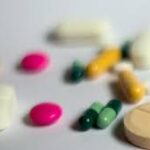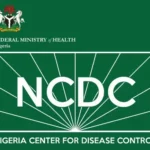Antimicrobial Resistance in Africa: Causes & Impact

Antimicrobial resistance (AMR) is one of the biggest threats to global health, and Africa is at the frontline of this crisis. The misuse of antibiotics, limited access to quality medicines, and weak surveillance systems have created conditions where once-treatable infections are becoming deadly again. According to the World Health Organization (WHO), AMR could cause 10 million deaths globally each year by 2050 if not tackled—and Africa is among the most vulnerable regions.
Causes of AMR in Africa
1. Misuse of Antibiotics
In many African countries, antibiotics can be purchased over the counter without prescriptions. Patients often self-medicate, stop treatment early, or take incomplete doses, fueling resistance.
2. Counterfeit and Substandard Medicines
Fake antibiotics with little or no active ingredients worsen the spread of resistance. As highlighted in Nigeria, counterfeit medicines reduce treatment effectiveness and create “superbugs.”
3. Poor Infection Control in Hospitals
Overcrowded hospitals, poor sanitation, and inadequate infection prevention measures accelerate the spread of resistant bacteria.
4. Agricultural Misuse
The use of antibiotics in livestock and farming without proper regulation contributes to resistant strains that can spread to humans through food chains.
Impact of AMR on Africa
1. Rising Mortality
Drug-resistant infections such as multi-drug resistant tuberculosis (MDR-TB), resistant malaria, and untreatable bacterial infections are increasing mortality rates.
2. Increased Healthcare Costs
Resistant infections often require longer hospital stays, expensive treatments, or second-line drugs that many Africans cannot afford.
3. Threat to Modern Medicine
AMR undermines medical progress. Surgeries, cancer treatments, and organ transplants depend on effective antibiotics. Without them, routine procedures become life-threatening.
4. Economic Losses
According to the World Bank, unchecked AMR could reduce global GDP by 3.8% by 2050, with Africa facing the worst losses due to fragile health systems.
Africa’s Response to AMR
1. National Action Plans
Countries like Nigeria, South Africa, and Kenya have launched AMR action plans in line with WHO’s Global AMR Strategy, focusing on surveillance, awareness, and regulation.
2. Role of Regulatory Agencies
NAFDAC in Nigeria and other African regulators are stepping up efforts to curb antibiotic misuse and monitor drug quality.
3. Regional Collaboration
The Africa CDC has initiated a continent-wide AMR surveillance program to improve data collection and response.
4. Public Awareness Campaigns
Educating communities on the dangers of self-medication and promoting proper antibiotic use is critical in reducing misuse.
Solutions to Combat AMR in Africa
-
Strengthen Prescription Controls – Ensure antibiotics are dispensed only with valid prescriptions.
-
Combat Fake Medicines – Invest in technology-driven drug authentication and supply chain monitoring.
-
Improve Sanitation and Infection Prevention – Better hospital hygiene and community sanitation reduce infection spread.
-
Boost Local Pharmaceutical Manufacturing – Reduce reliance on poor-quality imports by producing quality antibiotics locally.
-
Promote Research and Innovation – Invest in new antibiotics, vaccines, and diagnostic tools to fight resistant infections.
Conclusion
Antimicrobial resistance is not just a medical issue—it’s a public health, economic, and security crisis for Africa. Without urgent action, the progress made in fighting infectious diseases like malaria, tuberculosis, and pneumonia will be reversed. By combining strong regulation, public awareness, regional cooperation, and innovation, Africa can slow down the AMR crisis and protect future generations.
Written by Fawzi Rufai, Medically Reviewed by Sesan Kareem



